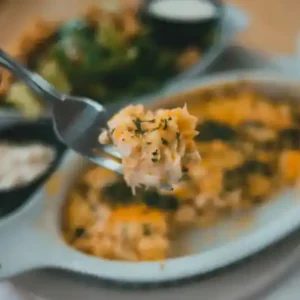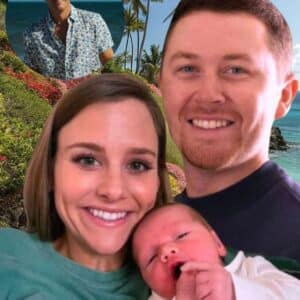My name is Claire, I’m 33, and if you’d asked me a year ago how my marriage was, I’d probably have given you some sitcom answer like, “Not perfect, but solid.” Ten years in, Daniel and I had our routines, our inside jokes, our little flaws. I trusted him. I trusted our life.
I had no idea how much weight that trust was actually carrying.
Daniel has an older sister, Lauren. She’s 42 and one of those people who seems like she was born with a planner in her hand and a purpose in her spine. When I met Daniel, he said, “If you want to impress anyone, impress Lauren.” I thought he was joking, but over the years she genuinely did become one of my closest friends.
About four years ago, Lauren invited the whole family over. She stood at the head of the table, holding a glass of wine, and announced that she’d made a huge decision: she wasn’t waiting for a partner anymore. She wanted to be a mother, and she was going to adopt.
We were thrilled for her. She’d make an incredible mom. I hugged her. Daniel told her she’d be the “cool mom,” which made her laugh through her nerves.
A few months later, she brought home a baby girl—Ava. Tiny, soft, blinking at the world like it was all too bright. I helped with the nursery, held the baby so Lauren could shower, hung little cloud stickers on the wall.
And Daniel… didn’t. Not once.
He avoided holding her. Avoided standing close to her. “I don’t know what to do with newborns,” he said. It made sense at first. A lot of men are awkward around babies.
But the awkwardness didn’t fade.
It hardened.
As Ava grew into a sweet little toddler—curious, gentle, always humming—Daniel stayed distant. Whenever she toddled toward him with outstretched arms, he stepped back. Whenever she climbed near him, he flinched. Whenever she hugged his leg, he’d pat her stiffly like she was a stranger’s kid in a grocery store.
She adored him anyway.
Every visit, she’d shout “Uncle Danny!” with the kind of faith only a child can carry. And every time he pulled away, I watched something small dim in her eyes.
I asked him gently, then not-so-gently, if something was wrong. He kept brushing it off.
“Work stress.”
“I don’t know how to talk to kids.”
“It’s nothing, Claire. Drop it.”
Lauren noticed too, but she waved it off. “He’s just tired.”
Then came Ava’s fourth birthday.
The night before, I was in a towel fresh from the shower when I heard Daniel’s voice—sharper than usual. He was pacing, phone pressed to his ear.
“No, Lauren, I’m NOT coming,” he snapped. “I don’t want to see her. I can’t even look at that kid.”
I froze.
“That kid.”
He didn’t stop there. He hissed that this was “her mess,” that he wasn’t going to “pretend everything is normal,” that she shouldn’t have dragged him into any of it.
When he hung up, he stood there breathing like he’d just run a marathon. I crept back to the bedroom and stared at my reflection, trying to understand what I’d just heard.
The next morning, he acted like nothing happened. Made scrambled eggs. Claimed he had a “work meeting”—on a Saturday.
I didn’t argue. I just left for the party.
When I pulled Lauren aside later, she already looked worn down by something I hadn’t yet named. I told her what I heard. She went pale and whispered, “He told you?”
And then she said the words that cracked open everything I thought I knew:
“Claire… I didn’t adopt Ava the way people think.”
Her voice shook. She made me sit down.
The woman who gave Ava to her wasn’t a stranger—not to her, and not to Daniel.
It was Lauren’s best friend. A woman named Megan. Someone who’d been around their family for years.
And five years ago, during a family trip I couldn’t attend, after drinks and emotions and bad judgment, Daniel slept with her.
A one-night mistake, he’d told Lauren. A horrible lapse he swore meant nothing.
Except Megan got pregnant.
Panicked, ashamed, terrified of ruining my life, she had gone to Lauren. And Lauren had stepped in, promising to adopt the baby to keep everyone steady. To protect everyone.
They hid the pregnancy from me. Hid the paternity. Hid the truth of who Ava really was.
When Ava was one, Daniel and Lauren did a DNA test. To “be certain.” He was the father. They agreed to keep it secret forever.
They let me fall in love with Ava as a niece while Daniel couldn’t even look at her without seeing his mistake.
Lauren handed me the worn envelope—DNA results with his name printed in bold. I walked out in a daze, drove home shaking, and dropped the papers onto our coffee table in front of him.
He went white.
He tried to explain. He said he’d been drunk, scared, stupid. That he thought telling me would ruin our marriage. That once Lauren adopted her, he thought the secret was contained.
He cried. Begged. Promised everything.
I grabbed my purse, told him not to follow me, and walked out.
For days I lived at my friend’s place, barely eating, barely sleeping. My phone filled with messages from him—apologies, explanations, desperation. From Lauren—regret mixed with hope that I’d talk to her.
Finally, Lauren sent one message that broke me:
“I know you’re hurting. But Ava needs you. Please don’t disappear on her.”
That was the one thing I couldn’t ignore.
So I met with them. Little Ava ran into my arms like nothing had changed, and I wondered how a man could call her a mistake.
I told Daniel plainly: I wasn’t there for him. I didn’t know if our marriage would survive. I didn’t know if I wanted it to.
But I wasn’t going to be another grown-up who abandoned Ava.
So we did therapy. Separately. Together. Slowly. Painfully.
Daniel began showing up for her. Truly showing up. Sitting on the floor building block towers, reading picture books, letting her braid his hair with sparkly clips. Letting himself see her—not as a reminder of his failure, but as a child who loved him.
There were setbacks. Fights. Nights I questioned everything. Days I kept my distance from him, sleeping in the guest room.
But there were also these tiny, fragile moments where something inside me softened. Watching them laugh together. Watching Ava lean on him without fear. Watching him hold her with a tenderness he’d once been terrified of feeling.
A year later, at her fifth birthday party, Ava ran into my arms wearing a purple party dress, frosting smeared across her cheek.
“Thank you for coming, Auntie Claire,” she whispered.
“I wouldn’t miss it for anything,” I told her.
Daniel was there too, helping her blow out candles, carrying her when she got tired, reading the tag on each present out loud.
I watched them, heart heavy and hopeful all at once. Grief for the betrayal. Grief for the lost years. But also hope—real, trembling hope—that maybe we could rebuild something honest from the ruins.
Some families fall apart.
Some were never solid to begin with.
And some—like ours—survive only because everyone decides to stop lying, stop running, and start trying.
One day at a time, we’re trying.





